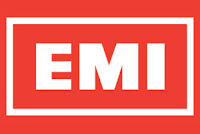In the past 10 years, the music industry has changed a lot. Especially in the way they produce, distribute and exchange music.
Production
Before, the music would be recorded in a proper music studio. Real instruments were used. Nowadays, you can make music on your phone. The need to have a professional studio isn’t compulsory anymore, and neither is the use of real instruments.
Distribution
10 years ago, the CD format just started to become popular. The radio used to play a major part in the promotion of artists. In addition, word of mouth and burned CDs helped in the promotion of artists,.
Today, most people download songs in the MP3 file format, the word of mouth had evolved; people now promote their favourite artists on social networking sites. YouTube also plays a major part in the music distribution today, as it is very popular (especially amongst young people).
Exchange
Before, physical copies of the record would be purchased in music stores. Today, music is easy to obtain from the Internet. Although there are websites on which you can buy music, a major part of the music obtained for free, using P2P and illegal downloading sites for example. This is mainly due to the big shift the music industry did, from the analogue format to digital, and the progress in computer technology.
The music industry is facing a constant decrease in sales. As shown in the Monthly Market Analysis of July 2011, almost every indicator were showing a decrease in sales (Artist albums sales, for example, are 14% down!). The only figure that shows an increase is the singles sales, which are up by only 8.4%.
In 2004, the record labels Sony Music Entertainment and BMG Entertainment merged, as a result from the lack of sales. In 2010, both EMI Group and Warner Music Group went through financial restructuring.
The big four music labels in 2010 are Universal Music Group, Sony Music Entertainment, EMI Group and Warner Music Group. However, all of them owns a lot of smaller record labels. For example, Universal owns Island Def Jam Music Group. The reason why they are not all under the same name is that they want to make them look independent, in order to keep those niche audience. It also allows them to keep each label associated with a particular genre, which would not be possible if they were all under the same name. It also allows them to be stronger, financially as they are not putting the whole group at risk when they sign with a new artist, for example.



